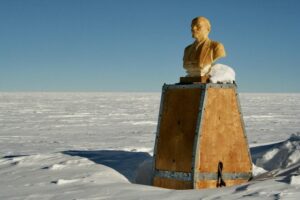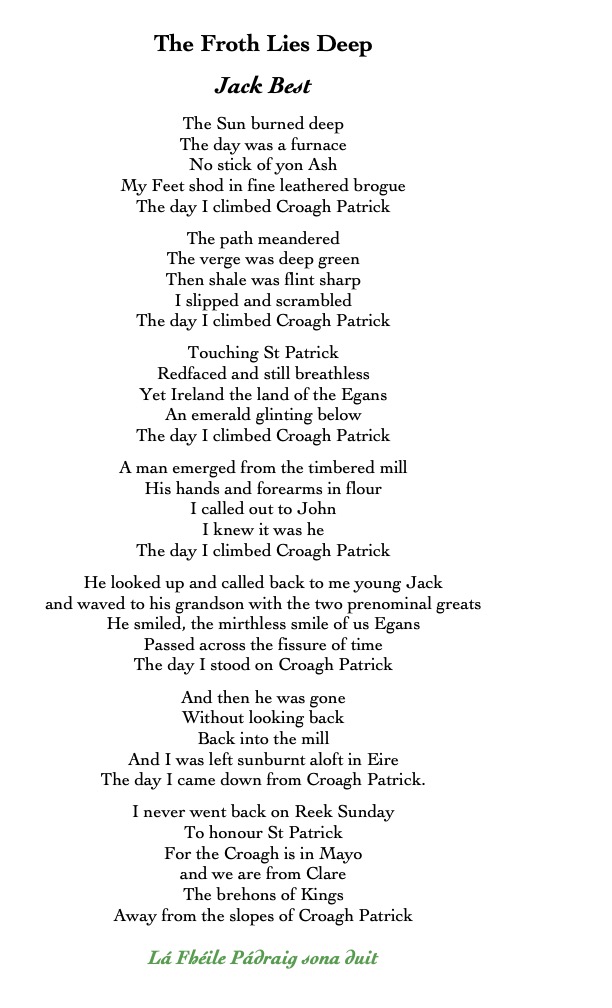
∞∞∞∞∞∞
There’s a difference between psyching yourself up and misrepresenting yourself, and the latter is where “fake it” has gone too far. We need a reset, and to find a way to once again prioritize and reward diligent, honest effort over faux success. Government needs to return to enforcing meaningful financial regulation; politicians and entrepreneurs who deceive their supporters need to face consequences. And we need to be less credulous and stop falling for the next shiny thing. – Helaine Olen, Washington Post
So here we are the end of my fourth year writing a blog each week.
Sometimes I feel like the Beatles’ Father MacKenzie – writing the words of a sermon that no one will hear; no one comes near; look at him working, but then it goes on to something about darning socks in the night when apparently everybody has deserted him, but he yet retains a priestly insouciance. From this chiaroscuro cell of mine, may I thank Frank Meany for his encouragement in ‘mousing’ my first one in 2019. My socks remain undarned.
Nevertheless, Ms Olen’s observation remains very pertinent to me every time I pick up my mouse. I publish one blog a week; they have grown to over 3,000 words, but it has meant I read widely, and republish with acknowledgement information I find interesting. I write a blog as now I have the time to write. Now I have time to reflect I can leave a legacy for what it is worth. So here goes into my no. 208.
I was talking to a friend of mine who had returned from a very comfortable dinner. I mentioned to him the breakdown of the refrigerated truck bringing food, in particular meat, to our village. It is a 45 minute drive to the next towns – one was over the range; the other over more undulating territory. We were expecting friends for dinner, and my wife happened to be at the only supermarket in town to hear the news that explained the empty fridge shelves. She was able to snaffle some chicken legs, but there was not much more to be had.
The weather was unexpectedly bad for this time of the year. Low weather fronts coming through, rapidly dragging thunderstorm, rain and gusts up to 100 km/hour. At about two am, the power went off. There was a pole fire nearby. This day was cold; there was no heat. Despite the house being built as a wilderness pole house, there is no chimney. A gas fire better heats the house; you do not have to cluster around an open fire trying to keep warm. But it needs electricity to create the spark to light the gas and run the fan.
Fortunately, we have a gas stove and could cook; and with battery and candle, we survived 18 hours without electricity. Having listened to what my friend said that he feared that there would be more outages, his prediction seemed self-fulfilling. True to his prediction, next morning, another outage shut down the Sydney rail system; the day after it was the turn of two large public hospitals in Melbourne. In neither case was it thought to be due to a malignant cyberattack.
Meanwhile, the flooded Kimberley region is running out of food – not just one lorry broken down as happened to us. All the roads are now cut off; and then next day, it was the turn of Mount Isa and all the rivers that flow north of the Selwyn ranges are now in flood.
We went for 18 hours without heating, and it was very cold. But think of the deprivation that so many people across Australia have suffered alongside COVID-19. Sure, I have had a bout of long COVID, but we’ve not been flooded or burnt out – yet! Our deprivation this time was really a nothing compared what else is happening and has happened over the past few years to so many people.
Thus, our deprivation was just an irritation and perhaps a harbinger of things to come; but look at the government priorities! Nuclear submarines for God’s sake! Moreover, the sabre-rattling group assembled by the SMH was predicting a war with China in three years.
As reported in the SMH: “Former Defence Department deputy secretary Peter Jennings estimates the eight boats will eventually cost taxpayers the equivalent of 1 per cent of Australia’s gross domestic product or some $20 billion each year.
That’s roughly the combined annual revenues of Australia’s wheat and beef industries, or more than the cost of the NDIS last year. The problem is, the submarines are not expected to arrive for 15 to 20 years, which could be on the other side of a war with China.
“On the other side of a war with China.” What does that mean?
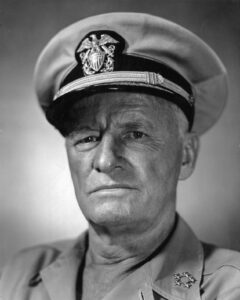
As part of the agreement, the United States and Britain will rotate nuclear-powered submarines into port in Perth by 2027. One such submarine, the U.S.S. Asheville, is already there now on a port visit, before the formal schedule of rotations.
At that time, I must have dropped off to sleep because I dreamed a dream. Somebody nudges the March Hare to wake him up. Meanwhile, the dormouse strewn with marigold flowers has arrived at the table and pipes up being asked to defend the purchase of these expensive toys, said: “This is about jobs … and Adelaide in particular will be a big beneficiary of this announcement, as well as Western Australia in particular”. Just before being shoved into the AUKUS teapot, somebody watching asks aren’t the nuclear submarines about the defence force capability. The answer is lost in the gurgles, but the word “capacity” does get a mention before the dormouse goes down for the third time. I shake myself awake; was that a dream?
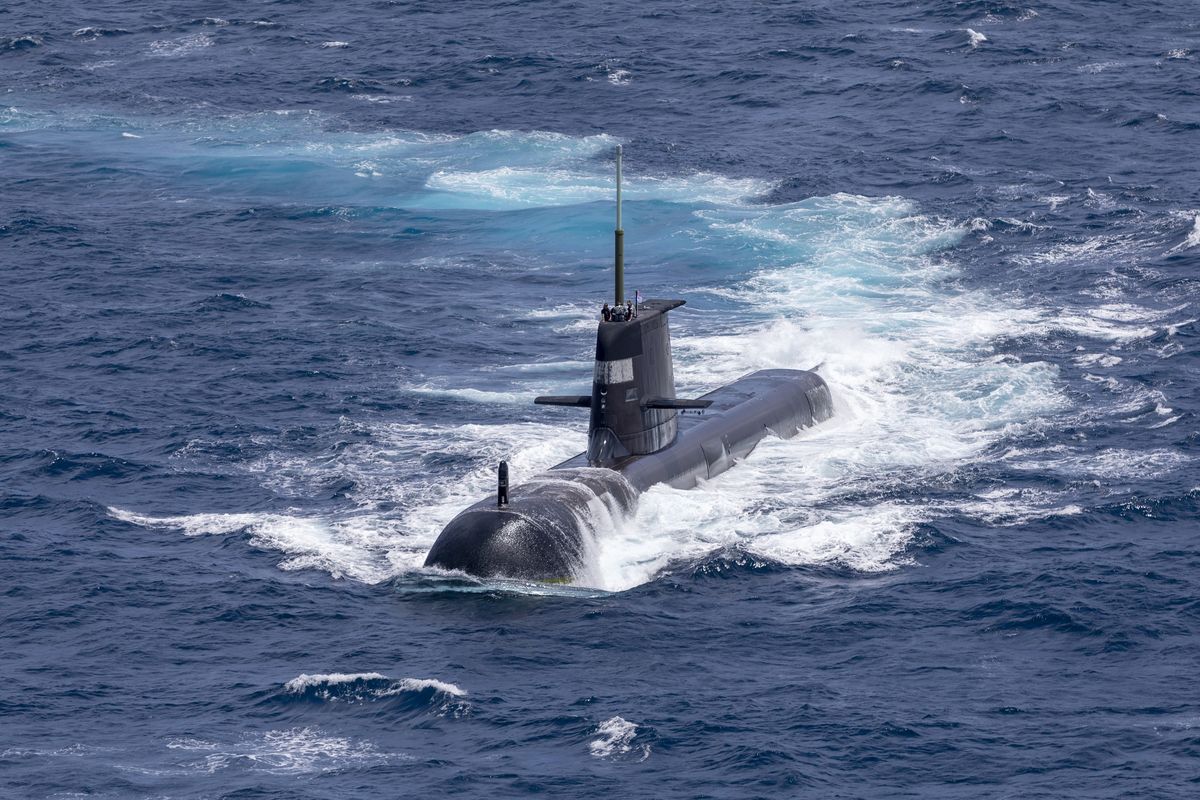
Before contemplating further let us consider whether we have combatted our internal challenges. Our ability to cope with floods has come up short. Too much of our domestic and commercial infrastructure is built on flood plains and, with climate change heralding more extreme weather, there are large infrastructural costs awaiting Australia. Promises are easy, but nothing much seems to be done, given it is estimated that one million homes are at risk from flooding by 2030. Brisbane and the Gold Coast local government areas are the most vulnerable in numbers, but the Greater Shepparton area in Victoria has the greatest percentage of such homes (56%) with nearby Wangaratta not far behind (43%) – a total of nearly 3,000 homes. Increasingly such places are uninsurable, which leaves only we, the mug taxpayers, as the reconstruction funder.
Australia does not have the equivalent of the US Army Corps of Engineers, which, among its many functions, is flood mitigation, and although there were criticisms for the levee construction in New Orleans, there is consolidated expertise. A recent report in 2022 noted that “Seventeen years after Hurricane Katrina flooded New Orleans, the Army Corps of Engineers has completed an extensive system of floodgates, strengthened levees and other protections. The 130-mile (210-kilometre) ring is designed to hold out storm surge of about 30 feet (9 meters) around New Orleans and suburbs in three parishes.”
Even so, Nicholas Lemann, writing in The New Yorker, was not so sanguine.
After Katrina, as after Betsy, such plans were drawn up, but nobody wanted to pay for them. New Orleans had to settle for levee enhancements that fell far short of providing invulnerability to a Category 5 hurricane, and wound up returning to something not too different from its pre-Katrina state. The city is an irresistibly alluring place that does far better by its white citizens than its Black ones. Life is sweet when it isn’t tragic. Lodged somewhere in everyone’s consciousness is the knowledge that what happened in 2005 is going to happen again.
Eleven months after the Lismore floods, a Northern Rivers Reconstruction Authority has been set up and $800 million promised, but nothing much seems to have been done, which is visible to the community. Somebody might echo Lemann and say it will happen again because no government is prepared to spend the money to 100% guarantee waterproofing the current Lismore, but as with Lismore residents nobody wants to move away.
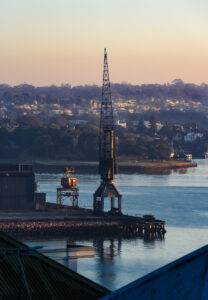
Now as the sabre-rattling group would insist Australia faces war with China. Do we wish to contemplate that? An old doctor in conversation with me years ago told of when World War I was declared, there were celebrations in the streets – he remembered hats being thrown in the air – excitement was everywhere. War was a jolly adventure in exotic places. Then, Australia was not threatened directly.
The last time Australia was directly threatened was 1942 – the population was mobilised – the dread when the postman came with news that your father, son, close relative had been killed. Food and clothing were rationed. But bombing of urban areas of Australia was restricted to Darwin and Broome – northern Australia. The Japanese onslaught was halted, they suffered mortal wounds as the War was washed north.
Volodymyr Zelensky has proved an unexpected obstacle. Given that we were fed a diet of Ukraine being corrupt, essentially a Russian satrap, and the line of least resistance was taken in relation to Crimea. Putin anticipated; NATO anticipated that Ukraine would just fall into the Russian sphere of influence. Conventional early wisdom was that Ukraine would be partitioned with the Russians ceded the eastern fertile black plains, while the truncated Ukraine would retain Kyiv and the Polish border areas – at least pro tem.
But Zelensky had different ideas, and he inconveniently precipitated NATO leaders out of the cocktail circuit into a world bereft of Louis Vuitton and Dom Perignon. Zelensky has created the nightmare; he stood up to Putin. It was not expected that a comedian had transformed himself into a resilient warrior.
Nevertheless, the Americans always seem to have a war on the go, dragging us with them. However, none of the recent Wars have the European backdrop Ukraine has provided. So, destroying a country where the infrastructure is notably European is thus enough to put the fear of God into the Europeans. It is they which, even with the diminishing number that directly experienced the horrors of WWII, see it now being re-run in the Ukraine.
Forget the power of the people; unless they inconveniently have the power that Zelensky has. Looking around our leaders there is no-one who reminds one of this man. There seems nobody else who can lead a popular revolution.
And what of China? They assumed control of Hong Kong, breaking the terms of agreement with the United Kingdom. There were street protests. There have been draconian measures put in place. There has been no urban warfare from those who opposed this take over. The sun still shines. The horses still race at Happy Valley and Sha Tin.
Power means control of the security forces. The street protests of the sort seen 40 years ago have been studied by those in authority and measures implemented to contain the people; these measures are increasingly perfected with more and more sophisticated brutality and repression.
The Chinese have not participated overtly in any war, apart from border skirmishes and the annexation of Tibet about 70 years ago, while in that same period the Americans have been in Korea, Vietnam, Iraq and Afghanistan – for what reward? I forgot Grenada, which the USA invaded in October 1983, a conflict which lasted four days before the Americans declared victory over a country of 113,000 people.
In fact on March 9 it was reported: that Taiwan’s Mainland Affairs Council (MAC) announced on Thursday that air routes between Taiwan and 10 Chinese cities will be reinstated on Friday, with 13 other Chinese cities selected for cross-strait charter flights. Starting on Friday, flight routes will be re-established between the Taiwanese cities of Taoyuan, Taipei and Kaohsiung, and the Chinese cities of Shenzhen, Guangzhou, Nanjing, Chongqing, Hangzhou, Fuzhou, Qingdao, Wuhan, Ningbo and Zhengzhou.
Ok … but that statement does not suggest war footing. The Americans were not part of this decision, I note.
So, what is the point of all this purchase of extraordinarily expensive toys of war? Can anybody in words of one syllable tell me how the current expenditure will help defend this country? The Taiwan response – a video of a young woman running with rifle, stumbling, with her helmet falling over her face, and then giggling. War footing? More like slippage.
Yet Taiwan has the perfect terrain for guerrilla warfare, but has anybody got the stomach for a war? What is Taiwan’s appetite for war? The Chinese would prefer a compliant Taiwan commercially strong, but avoiding a potentially destructive conflict with China. Where does Australia’s acquisition of nuclear submarines in the mid 2030s fit that scenario?
There is thus a possibility that China and Taiwan will reach an accommodation that avoids outright war. Nevertheless, some Chinese with assets are moving them to Singapore and elsewhere including Australia. Yet let us not be under any illusions that the Chinese diaspora is anti-China; some estimated that the pro-Chinese element in Australia would be about 80 per cent.
At the 2021 census, 1,390,637 Australian residents identified themselves as having Chinese ancestry, accounting for 5.5% of the total population. How is the Australian Government planning to deal with them in case of direct conflict with China. Internment? I think not. Think of the expense… but then again, those advocating building more and more sports venues, maybe they will have a secondary use. After all, the Melbourne Cricket Ground was requisitioned by the Americans and Australian defence forces between 1942 and 1945 with up to 200,000 troops using the ground facilities as barracks. Would we need it again – but now for an internment camp?
In any event, the last sentence in Helaine Olen’s opinion piece quoted at the beginning of this blog is particularly germane.
Billy Graham with a Pole
Bob Richards has recently died in Waco Texas aged 97.
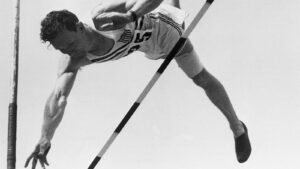
His would not be a familiar name today to anybody in Australia unless you, like myself, were a spectator at the Melbourne Olympic Games in 1956. He had been the Olympic champion in the pole vault in 1952 in Helsinki and had come to Melbourne in the USA team to defend his title. Pole vaulting was an unfamiliar sport in Australia, and I remember being seated close to the action. Australia had two competitors, but they had been knocked out in the preliminary round, finishing last and second last respectively.
Richards had not vaulted very well in the preliminary round, but in the final, he won with an Olympic record. As he freely acknowledged, even though he was able to surpass his Olympic record by pole vaulting over 15 feet many times, he was never able to surpass another American, Cornelius Warmerdam, a Californian who had set the World record in the early 1940s, but whose exploits were overshadowed by WWII. Warmerdam used a bamboo pole, which replaced the early solid ash poles; but by the time Richards was at his peak, the technology of the pole had moved to poles made of tubular aluminium.
Today’s top male vaulters, with refined techniques and springy fiberglass or carbon fibre poles that bow almost to U shapes, routinely soar over crossbars set above 19 feet (5.8metres). The world record is held by Armand Duplantis, an American-born Swedish athlete known as Mondo, who recently vaulted 20 feet 4-3/4 inches (6.22 metres). That height surpassed his own previous five world records, all over 20 feet (6.1 metres) and all set since 2020. From the Australian point, from the dismal performance of 1956, our standards have risen markedly. An Australian, Steve Hooker won the Olympic pole vault at the 2008 Beijing Olympic Games.
It is the one event, where it seems that there has been no brake put on the technology; and how far will such technology take man and woman into the ether. Hooker eventually jumped a height (6.06m), which remains the fourth highest height ever attained; in the end he lost his head for heights, who wouldn’t but anyway what a career!
As it was with Richards. With his etched looks he reminded me of Billy Graham and was, to some extent, much the same evangelical as he was ordained into a Brethren when he was only 20. He was given the nickname of the “Vaulting Vicar” by some, but all I knew was that he was a pastor for one of those evangelical Christian churches, which find the Southern American States such fertile ground. Sagebush piety, cowboy strong face enabled him to be, between 1958 and 1970, the face on the General Mills “Wheaties” packet, the cereal known as the “Breakfast of Champions.” He became director of the Wheaties Sports Federation, founded in 1958 after President Eisenhower called for a national physical fitness campaign.
So he was, his pole vaulting seemed to be a symbol of his form of Christianity where an aluminium pole and a bar being raised set against the sky were his basic Assumption.
An Added Thought from the Vault
Women’s pole vaulting does not easily fit into the Bob Richard narrative. Currently Australia has the number two rated woman pole vaulter in the world – Nina Kennedy. Last year she won the Diamond League title with a vault of 15ft 1.5in (4.61 metres) slightly less than her best, but would Australia ever know.
The first recorded woman’s world record holder was a Ruth Spencer, an American who vaulted 4ft 9in (1.44 metres) in 1910. The height is testimony to the change in times, when modern female athletes would high jump way higher than that. The current world pole vault record was set in 2009 by Russian Yelena Isinbayeva with a vault of 16ft 7in (5.06 metres). She held sway in the first decade of the 21st century, and with arched eyebrows, one can say that her record has not been challenged in the last thirteen years – but she was Russian.
Women’s pole vaulting attained prominence when first introduced as an event in the Sydney Olympic Games, when Tatiana Grigorieva, a Russian-born Australian, unexpectedly won the silver medal. During the 1990’s repeatedly breaking the then world record, Emma George was dominant.
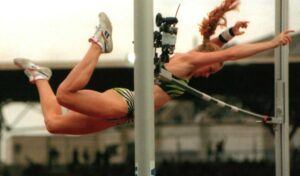
I remember for many years driving into Beechworth, her name was emblazoned on her hometown signage. But her dominance ended in tears, as the stress induced by pole vaulting caught up with her. She vanished even before the 2000 Olympic Games with a mess of chronic injury without any comment on her mental health.
In fact, she has become the mother of three boys, seemingly happy, still greatly attracted to the outdoors as judged by her profile in the media, where she acts as a free-lance journalist – a world which I once knew as that of a stringer.
A Sense of Theatre
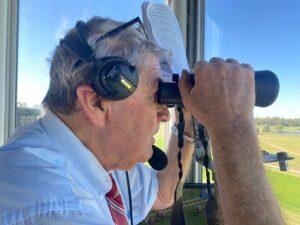
My eye caught the following on Twitter. “Race caller Col Hodges lives in flood ravaged Forbes. After having a cold shower this morning Col hitched a ride on a fire truck to get to a boat which took him to within 50 yards of the other side where he waded in knee deep water to get to a borrowed car to travel to Bathurst {to call the races}.”
Race callers are so much part of the heritage of the country. They all have their individual ways of learning. No University course here. Col Hodges started shooting marbles around the backyard pretending that they were racehorses. I knew one other bloke who started calling matches floating down a gutter.
When you note how many race meetings there are, it means that while the race callers in the city seem to form a kind of Establishment, there are many other meetings that need to be called. On this periphery are race callers like Col Hodges. I note that he called his first race meeting in a tiny place called Fifield, which lies between Trundle and Tullamore in the Central West of NSW with its hotel known as the Pub in the Shrub. We stopped there once just up the road from what looked like an old boarded up mill; yet as I noted in an earlier blog, there was a late model yellow Ford parked out the front and an array of expensive solar panels on the roof.
Col Hodges called a race meeting there in 1971. As he recalled “It was a picnic meeting at Fifield on Easter Saturday. It was a dirt track, there were fields of between six and 10 to describe and around 500 people were in attendance. In those days a lot of tracks didn’t have photo finish cameras. A lady in the crowd called out after a close finish that I was trying to influence the judges. I went to a lot of meetings that didn’t have photo finish cameras so that’s where I learned to be pretty diplomatic in photo finishes. If I’m sure I’ll call it but there’s that many different angles, I call at about 30-35 race tracks, and some tracks you’re right on the line but unless I’m pretty sure I’ll just say it’s between this horse and that horse. I’ll have a go if I know the angle of the track and I’m confident but I don’t like letting people down by taking a guess when I’m at a bad angle just for my own glory.”
Yet Col Hodges was the last to call a triple dead heat in Cowra in 1997, and even ventured at the time that it might be the result. This was rather adventurous given that there have only been four in the whole history of Australian horse racing since the introduction of the photo finish camera. It took the stewards 30 minutes to declare the placings.
As is said, race callers need to have a sense of theatre.
Such sadness
Last week I recalled our time in southern Malawi. To quote local sources this past week: Heavy rains that triggered floods and mudslides have killed at least 199 people in Malawi, authorities. President Lazarus Chakwera declared a “state of disaster” in the country’s southern region and the now-ravaged commercial capital, Blantyre. Some 19,000 people in the south of the nation have been displaced, according to Malawi’s disaster management directorate.
This suggests that the Satemwa tea estate, a source of employment for many Malawians, which is only 43 kilometres South of Blantyre could not conceivably have been unaffected by Cyclone Freddy, to say nothing of the thousands of Malawian subsistence farmers whose farm plots crowded the river floodplains. Another country needing our help.
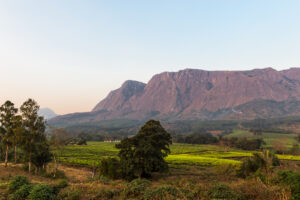
Mouse Whisper
He was complaining about the comment that bushfires had been reported as having decimated the ozone layer by five per cent. Five per cent is one twentieth. So, it is hardly “decimate”. Well, add this word to vocabulary to kill only five per cent – vicesimumate. In other words, we are going to be merciful – we are going to vicesimumate you lot. Instead of two for the chop, you lot will only lose one.
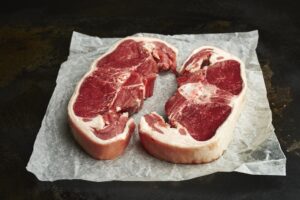
∞∞∞∞∞∞
OUT NOW!
35 Poems by Jack Best
An illustrated collection of poems
Order your copy of 35 Poems now – $30 plus postage.
Email to cameo@iimetro.com.au for your copies. Any profits will go to the Ukrainian cause and Malawi relief.
Jack’s poetic side finally gets an airing in this, his first book of poems. Described in the foreword by John Bevins as:
“… a joy … indeed, hoped-for gifts beat surprises. In one of Jack’s deeply personal poems (some are jolly folly), we learn his Father urged him to read Xenophon. ‘The sweetest of all sounds’, Xenophon said, ‘is praise’. Well, this body of work — with its own sweet sounds, ‘sounds sizzling in the wires’ — gets my praise. All the more so because of Jack Best’s courage to say what he feels in a way that allows us to feel what he says”.

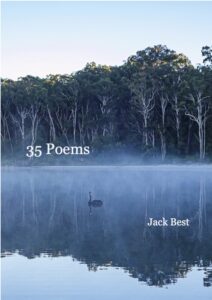
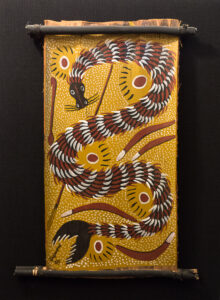
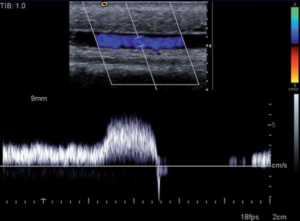
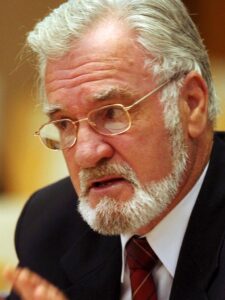
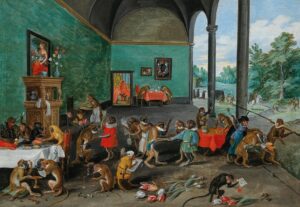
 The value of the bulb during this hectic three period provided a way to extricate oneself from, if not poverty, at least to being able to afford a decent house -only if you sold early. However, given where many of the transactions took place as the author of Tulipomania wrote: “The trade was conducted for the most part in a haze of inebriation.”
The value of the bulb during this hectic three period provided a way to extricate oneself from, if not poverty, at least to being able to afford a decent house -only if you sold early. However, given where many of the transactions took place as the author of Tulipomania wrote: “The trade was conducted for the most part in a haze of inebriation.”
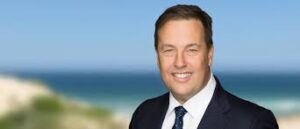

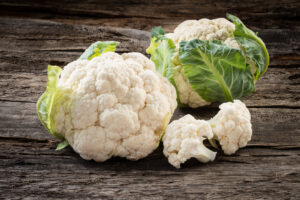
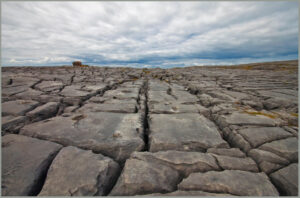
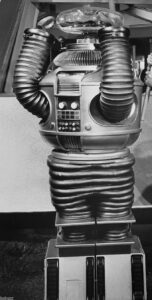 Albanese, you addressed them, but see how the Murdoch Press tried to mangle you? As the Robot’s catchcry in Lost in Space goes: “Warning, warning, warning!” Rather apt, I would think – on many fronts!
Albanese, you addressed them, but see how the Murdoch Press tried to mangle you? As the Robot’s catchcry in Lost in Space goes: “Warning, warning, warning!” Rather apt, I would think – on many fronts!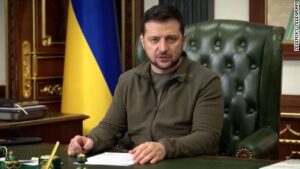

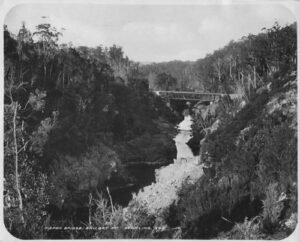
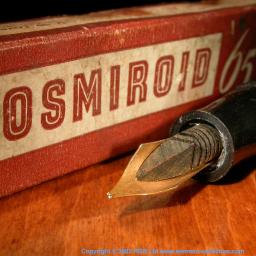
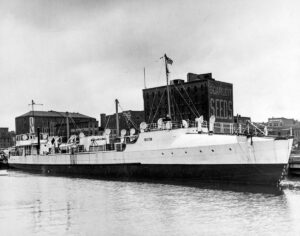

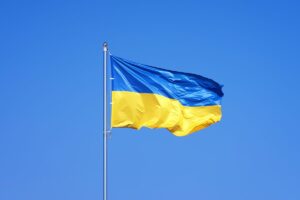
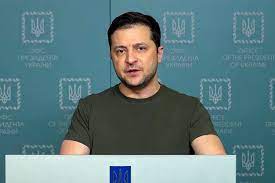
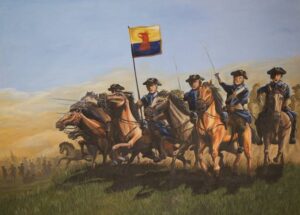
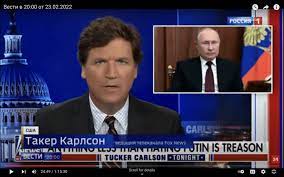




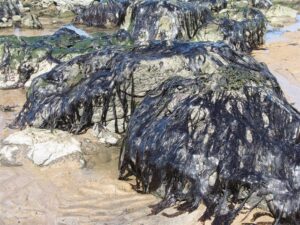
 Below Isabella Higgins was reflecting on where she came from in a piece written three years ago. Now she is the ABC face in the Western Ukraine.
Below Isabella Higgins was reflecting on where she came from in a piece written three years ago. Now she is the ABC face in the Western Ukraine.